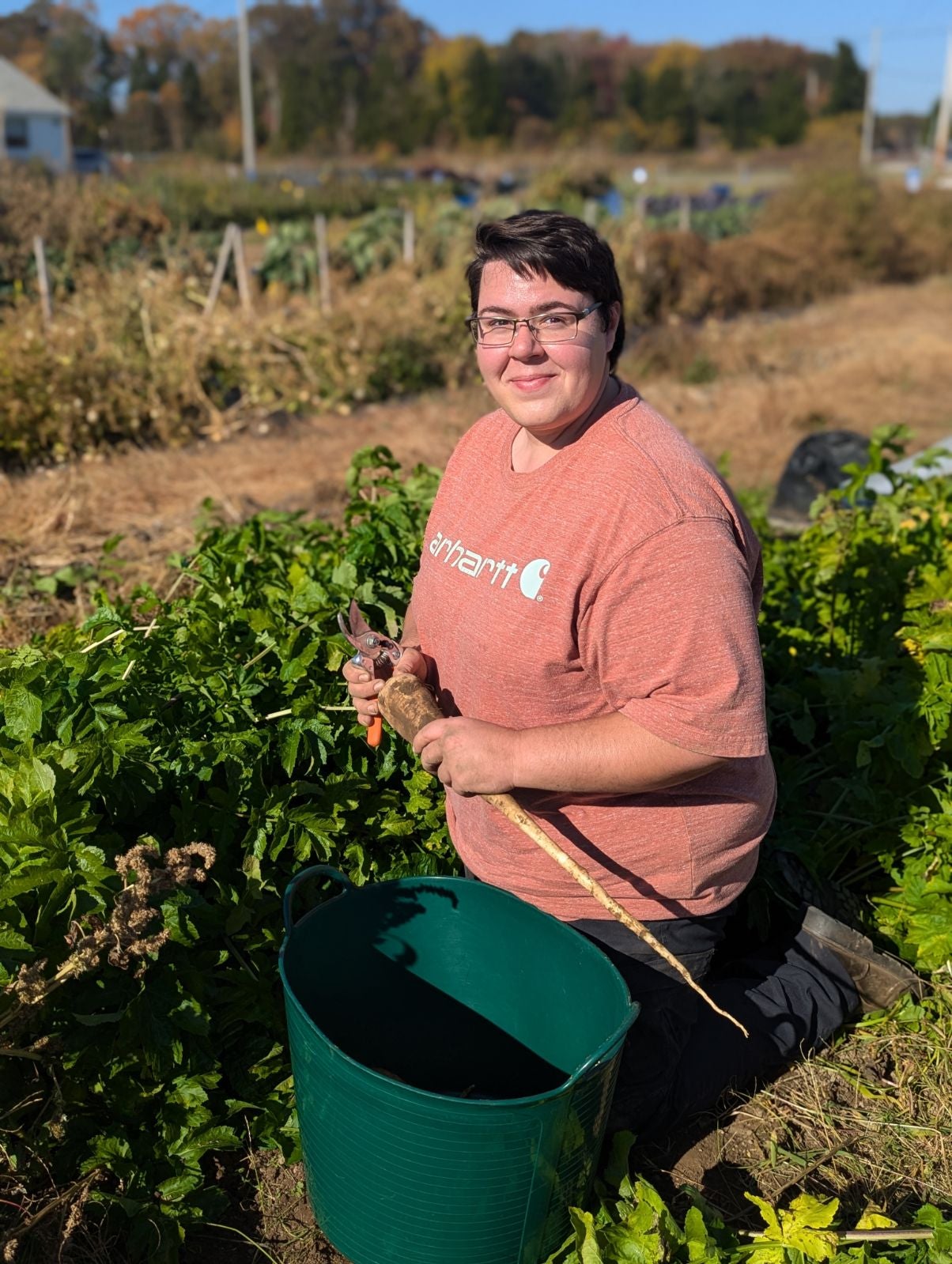It’s a crisp October morning in Kingston, and students are lining up on the sidewalks of the quadrangle in the center of campus between classes. Their destination? A booth offering free produce that has been grown on the University’s teaching and research farms, including a variety of vegetables from URI’s Agronomy Farm and eggs from Peckham Farm.
Behind this award-winning Free Farmers Market is a team of volunteers harvesting, processing, and packing fresh produce led by Harvest Manager Christina Monk, a plant sciences major. Among other duties, Monk coordinates with Tricia Lourenco Boucher, Vegetable Crop Research Team Leader, to make a harvest plan each week so the produce can be advertised prior to the market. Farm to table turnaround is less than 24 hours: farm-fresh offerings are gathered on Wednesdays and distributed on Thursdays.
“It has been so rewarding to work with the volunteers,” Monk says of her role as harvest manager. “Many of them had never had the opportunity to harvest before, and are so excited to see where their food comes from! And seeing the students line up and get fresh nutritious food really makes all the hard work worth it and the whole job feels so satisfying,”
As someone who feels passionately about nature and how the environment is impacted by food production, Monk has found purposeful work in the Department of Plant Sciences and Entomology, actively involved in research and Cooperative Extension programs that support farmers and gardeners in Rhode Island. She assists with the URI Vegetable Program team at Agronomy Farm, led by Professor Rebecca Brown and Boucher, conducting various research projects related to crops–including variables such as growing environments, varieties, and yields. The team also grows produce for the Free Farmer’s Market, Rhody Outpost, and the Johnnycake Center.
One research project Monk is collaborating with Brown on involves husk cherries. For the past two years, they have been trying to simulate a warmer, more supportive environment to encourage a fruitful harvest for the plants. While the project has been affected by the Tobacco Streak Virus both years, the work continues and Monk hopes to present this work at the New England Vegetable and Fruit Conference later this year. “Working on these research projects is a really great feeling for me,” Monk adds. “It gives a lot of life to the work, knowing your results could really make a difference for a local farmer or gardener. It gives me a real sense of making a difference.”
Monk notes that the knowledge she’s gaining both inside the classroom and throughout a variety of research projects is enriched by the hands-on, practical experience she’s had working on URI’s farms. “As a farmhand, I’ve been a part of every job on the farm,” Monk says. “I only had experience in a small home garden before starting at Agronomy Farm, and now I feel confident to tackle any farm task with skill and enter the workforce as a prepared individual. Here at URI, I have had the opportunity to be trained on equipment that will follow me the rest of my career.”
“I’m really glad to have found my community at URI,” she adds. “Not to sound cheesy, but I know the memories I made here will last a lifetime. And the experiences have really changed me and helped me grow as a person.” As for advice for prospective or incoming students, Monk has this advice: “Major in Plant Sciences! Plants are our greatest natural defense against climate change!”

